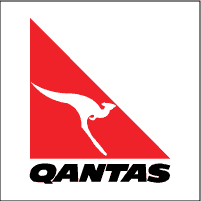|
|
|
Qantas May Face Big US Fines
Breaking Legal News |
2007/08/13 11:32
|
QANTAS has admitted it may have to shell out far more than the $47 million set aside to pay potential fines and damages that could arise from a United States price-fixing investigation.
Managing director Geoff Dixon said yesterday that Qantas was not able to estimate the likelihood of fines in jurisdictions outside the US or what the outcome might be of third party class actions launched elsewhere.
Maurice Blackburn Cashman, a Melbourne legal firm of class action specialists, is suing Qantas, British Airways, Japan Airlines, Air New Zealand, Singapore Airlines and Lufthansa over allegations that fuel surcharges introduced in 2000 were artificially inflated.
The law firm alleges the airlines followed an index originally set up by Lufthansa and used it as a mechanism to inform each other how and when surcharges would be imposed.
Kim Parker, a principal of the law firm's major projects division, yesterday appealed to businesses that have shipped air freight over the past seven years to lodge a claim via her firm if they were unduly affected.
Earlier this month British Airways and Korean Airlines agreed to plead guilty in the US courts and pay separate fines of $US300 million ($355.6 million) after admitting their involvement in fixing fares and cargo charges.
At the same time, on the other side of the Atlantic, the UK Office of Fair Trading imposed an additional fine of pound stg. 121.5 million ($289.4 million).
Two other airlines, Lufthansa and Virgin Atlantic, escaped prosecution by admitting their involvement and giving evidence against other carriers to the US prosecutors.
In his official statement yesterday, Mr Dixon said Qantas had thoroughly investigated the matter and was co-operating with regulators in the US, Europe, Australia, New Zealand other jurisdictions.
"These investigations revealed the practice adopted by Qantas Freight and the cargo industry generally to fix and impose fuel surcharges was likely to have breached relevant competition laws," he admitted.
"To date, it has not been possible to quantify any direct or indirect liability associated with these matters.
"We are confident that the unacceptable conduct was limited to a small number of people," said Mr Dixon, adding that it was not appropriate to offer further comment.
Qantas yesterday continued to dismiss speculation it was selling its Frequent Flyer program to the Canadian company Aeroplan which also runs Air Canada's loyalty business.
The Australian carrier's corporate affairs department recycled late yesterday a statement issued on Friday denying that it was about to list the $3 billion-plus business and bring in Aeroplan as a partner.
Qantas fell 4 yesterday to $5.35. |
|
|
|
|
|
|
Class action or a representative action is a form of lawsuit in which a large group of people collectively bring a claim to court and/or in which a class of defendants is being sued. This form of collective lawsuit originated in the United States and is still predominantly a U.S. phenomenon, at least the U.S. variant of it. In the United States federal courts, class actions are governed by Federal Rules of Civil Procedure Rule. Since 1938, many states have adopted rules similar to the FRCP. However, some states like California have civil procedure systems which deviate significantly from the federal rules; the California Codes provide for four separate types of class actions. As a result, there are two separate treatises devoted solely to the complex topic of California class actions. Some states, such as Virginia, do not provide for any class actions, while others, such as New York, limit the types of claims that may be brought as class actions. They can construct your law firm a brand new website and help you redesign your existing law firm site to secure your place in the internet. |
Law Firm Directory
|
|





